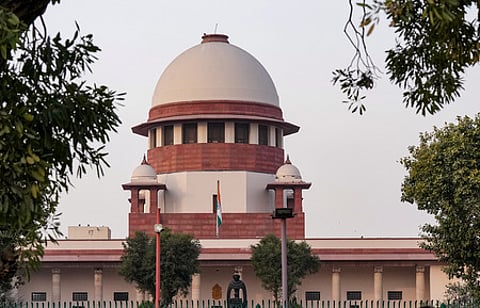Sec 479 of BNSS: Retrospective application of new law to ease jail population
NEW DELHI: In a major relief to undertrial prisoners, the Supreme Court on Friday said Section 479 of the Bharatiya Nagarik Suraksha Sanhita (BNSS), which replaced the Code of Criminal Procedure on July 1, would apply retrospectively.
The order came on a Public Interest Litigation to address the issue of overcrowding of prisons in India. Senior advocate Gaurav Aggarwal had told the court earlier that if BNSS Section 479 is implemented in its letter and spirit, it will help resolve the problem of overcrowding in prisons.
As per Section 479, undertrials can be released on bail if they have completed half of the maximum period of imprisonment specified for the offence they were jailed.
If the person is a first-time offender, he shall be released on bond by court if he has undergone detention up to one-third of the maximum period of imprisonment specified for such an offence.
A two-judge bench comprising justices Hima Kohli and Sandeep Mehta took the Centre’s statement on record that Section 479 would apply retrospectively and directed the superintendents of jails across the country to process the applications of the accused for bail accordingly.
“The said steps shall be taken as expeditiously as possible and preferably within three months,” the bench emphasised in its order.
All other BNSS sections can be applied only from July 1, the date they came into force.

